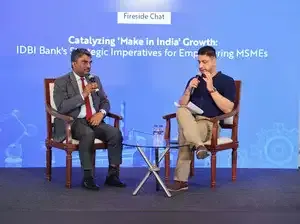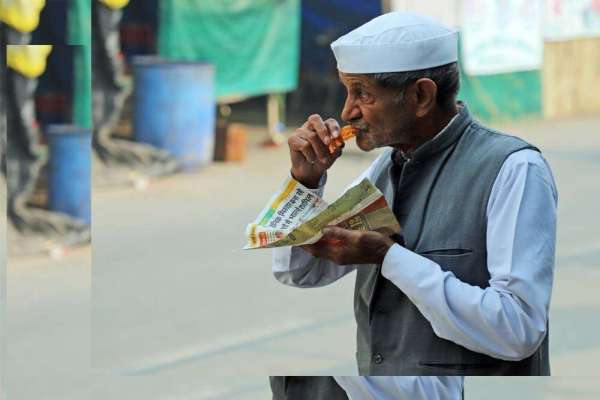More than 20 years after Ghaziabad’s Puneet Agrawal’s new Alto car was stolen from Haridwar, the vehicle’s insurer (National Insurance Company) was finally directed by the Ghaziabad District Consumer Disputes Redressal Commission (DCDRC) to pay Rs 1.4 lakh to Agrawal, along with a paltry Rs 5,000 for mental agony and litigation costs.
But why did it take Agrawal more than 20 years to get his rightful claim? On what grounds did the insurer reject his claim for so long? How can you prevent facing a similar situation if your car is stolen? ET Wealth Online explains it for you.
Unfortunately, after less than a month, on April 6, his car was stolen from Har Ki Pauri in Haridwar, where Agrawal was vacationing with his family.
Agrawal immediately lodged an FIR and also timely informed the insurer and bank about the theft, expecting a smooth claim payout. He also submitted all requisite documents to the insurer by January 2004.
However, the National Insurance Company (the insurer) rejected his claim, citing that Agrawal had not taken proper measures to safeguard his car and had parked it in an unsafe manner.
Agrawal wrote back to the National Insurance Company on 4 separate occasions- May 2, 2005, July 24, 2005, July 17, 2006 and April 18, 2006, but received no payment or response in return.
Aggrieved, he filed an appeal with the Ghaziabad District Consumer Disputes Redressal Commission (DCDRC), which initially dismissed his petition, saying that it did not have the jurisdiction to pass judgment on this matter.
After the initial dismissal of his appeal from the Ghaziabad DCDRC, Agrawal approached the State Consumer Disputes Redressal Commission (SCDRC) in Lucknow, Uttar Pradesh, in 2011. More than 10 years later, in February 2025, the SCDRC ruled that the Ghaziabad DCDRC is the appropriate authority to pass a ruling on this matter.
Following this, after over 2 decades of waiting, in July 2025, the Ghaziabad DCDRC ruled in favour of Agrawal.
Says Rakesh Kumar, founder of Square Insurance, "When it comes to motor insurance, especially theft claims,the insurers expect policyholders to exercise reasonable care, which is generally understood as applying common sense rather than guaranteeing absolute security. This includes ensuring the vehicle is locked when unattended, parking in reasonably secure or guarded locations, using security devices like alarms or steering locks when possible, and avoiding risky behaviour such as leaving keys in the ignition. That said, the onus doesn’t fully shift onto the policyholder even if there are minor lapses."
"Disputes over theft claims often stem from different interpretations of ‘adequate protection.’ While it’s important for owners to take reasonable precautions, the legal framework protects them from unfair denial of claims based on minor issues", he further adds.
This is not the first time that the National Insurance Company has been entangled in a claim repudiation case that has been dismissed by the Supreme Court or quasi-judicial authorities such as SCDRC and DCDRC.
The Ghaziabad DCDRC referred to other cases involving this insurer. The Supreme Court In its judgment in the case -- the National Insurance Company vs Nitin Khandelwal (May 8, 2008) -- had noted that in the case of a vehicle’s theft, the nature of the use of the vehicle, or other related aspects, cannot be looked into, and the insurance company cannot repudiate the claim on that basis. In other words, in the case of theft of a vehicle, the claim settlement will have to be undertaken on a non-standard basis.
“Section 149 of the Motor Vehicles Act, 1988, in our opinion, does not come to the aid of the Insurance Company in repudiating a claim where the driver of the vehicle had not contributed in any manner to the accident”, the apex court had added.
“Section 149(2)(1)(ii) of the Motor Vehicle Act empowers the Insurance Company to repudiate a claim wherein the vehicle in question is damaged due to an accident to which the driver of the vehicle, who does not hold a valid driving licence, is responsible in any manner. It does not empower the Insurance Company to repudiate a claim for damages which has occurred due to acts to which the driver has not, in any manner, contributed, i.e. damages incurred due to reasons other than the act of the driver”, it further added.
However, his car, which was purchased in 2003, would not be eligible to ply on Indian roads as of July 2025, since its fitness certificate expired in 2018. This is because it would be over 10 years old (if it were diesel-run), and 15 years old (if it were petrol-run). And effective January 1, 2022, all such vehicles would be impounded and sent for scrapping.
But why did it take Agrawal more than 20 years to get his rightful claim? On what grounds did the insurer reject his claim for so long? How can you prevent facing a similar situation if your car is stolen? ET Wealth Online explains it for you.
What actually happened?
Agrawal had purchased an Alto car on March 10, 2003, which was financed via a car loan taken from ICICI Bank in Jhandewalan, Delhi. He had also insured the car on the very same day, for a sum of Rs 1.9 lakh.Unfortunately, after less than a month, on April 6, his car was stolen from Har Ki Pauri in Haridwar, where Agrawal was vacationing with his family.
Agrawal immediately lodged an FIR and also timely informed the insurer and bank about the theft, expecting a smooth claim payout. He also submitted all requisite documents to the insurer by January 2004.
However, the National Insurance Company (the insurer) rejected his claim, citing that Agrawal had not taken proper measures to safeguard his car and had parked it in an unsafe manner.
Agrawal wrote back to the National Insurance Company on 4 separate occasions- May 2, 2005, July 24, 2005, July 17, 2006 and April 18, 2006, but received no payment or response in return.
Aggrieved, he filed an appeal with the Ghaziabad District Consumer Disputes Redressal Commission (DCDRC), which initially dismissed his petition, saying that it did not have the jurisdiction to pass judgment on this matter.
After the initial dismissal of his appeal from the Ghaziabad DCDRC, Agrawal approached the State Consumer Disputes Redressal Commission (SCDRC) in Lucknow, Uttar Pradesh, in 2011. More than 10 years later, in February 2025, the SCDRC ruled that the Ghaziabad DCDRC is the appropriate authority to pass a ruling on this matter.
Following this, after over 2 decades of waiting, in July 2025, the Ghaziabad DCDRC ruled in favour of Agrawal.
Says Rakesh Kumar, founder of Square Insurance, "When it comes to motor insurance, especially theft claims,the insurers expect policyholders to exercise reasonable care, which is generally understood as applying common sense rather than guaranteeing absolute security. This includes ensuring the vehicle is locked when unattended, parking in reasonably secure or guarded locations, using security devices like alarms or steering locks when possible, and avoiding risky behaviour such as leaving keys in the ignition. That said, the onus doesn’t fully shift onto the policyholder even if there are minor lapses."
"Disputes over theft claims often stem from different interpretations of ‘adequate protection.’ While it’s important for owners to take reasonable precautions, the legal framework protects them from unfair denial of claims based on minor issues", he further adds.
What was the verdict?
The Ghaziabad DCDRC awarded Agrawal a sum of Rs 1.43 lakh, along with Rs 5,000 as compensation for mental agony and litigation costs. This amounted to 75% of the vehicles' IDV (insured declared value) in 2003, which stood at Rs 1.9 lakh. The judgment also highlighted that if this amount was not paid by the National Insurance Company within 45 days, it would attract a penalty of 6% per annum in simple interest, which would be payable till the day the compensation is paid.This is not the first time that the National Insurance Company has been entangled in a claim repudiation case that has been dismissed by the Supreme Court or quasi-judicial authorities such as SCDRC and DCDRC.
The Ghaziabad DCDRC referred to other cases involving this insurer. The Supreme Court In its judgment in the case -- the National Insurance Company vs Nitin Khandelwal (May 8, 2008) -- had noted that in the case of a vehicle’s theft, the nature of the use of the vehicle, or other related aspects, cannot be looked into, and the insurance company cannot repudiate the claim on that basis. In other words, in the case of theft of a vehicle, the claim settlement will have to be undertaken on a non-standard basis.
“Section 149 of the Motor Vehicles Act, 1988, in our opinion, does not come to the aid of the Insurance Company in repudiating a claim where the driver of the vehicle had not contributed in any manner to the accident”, the apex court had added.
“Section 149(2)(1)(ii) of the Motor Vehicle Act empowers the Insurance Company to repudiate a claim wherein the vehicle in question is damaged due to an accident to which the driver of the vehicle, who does not hold a valid driving licence, is responsible in any manner. It does not empower the Insurance Company to repudiate a claim for damages which has occurred due to acts to which the driver has not, in any manner, contributed, i.e. damages incurred due to reasons other than the act of the driver”, it further added.
Is it enough?
Rs 1.9 lakh from 2003 would have been equal to around Rs 5.56 lakh in 2025 if we take into account an annual inflation of 5%. In contrast, Agrawal only received around Rs 1.48 lakh in total, leaving a massive deficit of Rs 4.08 lakh in current money terms. So, despite being abnormally late, this compensation clearly looks inadequate.However, his car, which was purchased in 2003, would not be eligible to ply on Indian roads as of July 2025, since its fitness certificate expired in 2018. This is because it would be over 10 years old (if it were diesel-run), and 15 years old (if it were petrol-run). And effective January 1, 2022, all such vehicles would be impounded and sent for scrapping.








